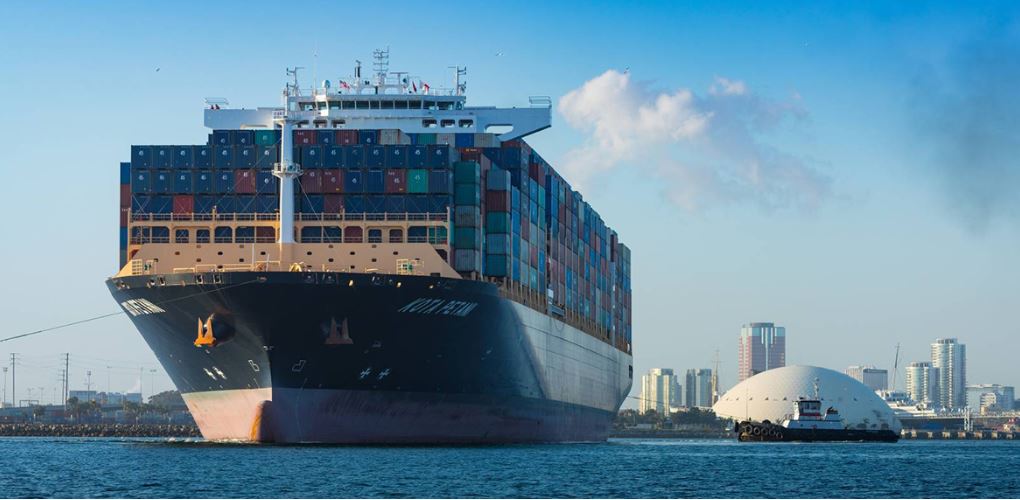On July 9, Avikus, a subsidiary of HD Hyundai Group specializing in autonomous vessel solutions, signed a supply contract with Hyundai Glovis, the logistics arm of Hyundai Motor Group, for its large-scale autonomous navigation system “HiNAS Control.” The system will be installed on seven Pure Car and Truck Carriers (PCTC) operated by Hyundai Glovis. This marks the first application of autonomous navigation solutions in a PCTC fleet within the shipbuilding industry.
Under the agreement, Avikus will provide the necessary hardware and software by July 2026, complete trial operations of “HiNAS Control” on the designated vessels, and conduct crew training.
“HiNAS Control” is an AI-based autonomous navigation system for large vessels developed by Avikus. It integrates data from various navigation devices and sensors, combining information from multiple navigational tools with augmented reality (AR) technology. The system can automatically control a ship’s direction and speed without crew intervention and features collision avoidance assistance and route optimization capabilities.
The technology applied by Avikus corresponds to Level 2 (“partial remote control”) of the International Maritime Organization’s (IMO) four-stage Maritime Autonomous Surface Ship (MASS) framework. At this level, vessels can be remotely operated via shore-based commands and monitoring through ship-to-shore communication networks, while onboard crew remain available to handle emergencies or take over control.
Avikus reported that Hyundai Glovis’ PCTC “Glovis Sky” began trialing “HiNAS Control” last year, achieving fuel savings of up to 3.9% through optimized safety measures and route planning.
Lim Do-hyung, CEO of Avikus, stated, “This contract not only reflects Avikus’ sustained growth momentum but also underscores how AI-based autonomous navigation is becoming a core pillar of the modern maritime industry.”
In October 2023, Pan Ocean’s 325,000-ton Very Large Ore Carrier (VLOC) “Sea Shanghai” permanently adopted “HiNAS Control” and commenced operations. Prior to this, the Korean Register (KR), Avikus, and Pan Ocean conducted extensive trials and tests to ensure the system’s stable implementation. “Sea Shanghai” successfully passed all evaluations, including key autonomous navigation functions such as route planning, path tracking, speed monitoring, collision avoidance, and safety feature verification.
Before deploying “HiNAS Control,” South Korea’s Ministry of Oceans and Fisheries and Panama—the world’s largest flag state—reviewed the system against vessel equipment standards and granted permanent installation approval. This marked Panama’s first authorization for a permanent autonomous navigation system.
At the end of 2023, Avikus also entered a Joint Development Project (JDP) agreement with HD Hyundai Mipo and the Korean Register to establish international standards for verifying the safety and reliability of autonomous vessels. Under this agreement, HD Hyundai Mipo and Avikus will construct ships equipped with “HiNAS Control,” while the Korean Register develops testing protocols to validate vessel safety and reliability during trials. The Korean Register will also research detailed evaluation criteria for autonomous navigation functions—such as route planning, speed monitoring, and collision avoidance—and formulate inspection standards based on the *Guidelines for Autonomous Ships* to facilitate seamless vessel development from design to delivery.
Avikus has previously supplied “HiNAS Control” to over 100 vessels owned by domestic and international operators, including SK Shipping, Sinokor Merchant Marine, and H-Line Shipping, covering VLOCs, container ships, and LNG carriers. Hyundai Glovis plans to expand the number of vessels equipped with “HiNAS Control” and introduce Level 3 MASS technology, enabling fully unmanned remote control.
Established in December 2020, Avikus was spun off from HD Korea Shipbuilding & Offshore Engineering’s autonomous navigation research division to enhance HD Hyundai’s smart ship capabilities. As HD Hyundai’s first in-house venture, the company focuses on developing and selling autonomous navigation solutions and maritime assistance systems, with KRW 800 million in registered capital and KRW 6 billion in assets.
According to Allied Market Research, the global autonomous vessel market is projected to reach approximately $130 billion by 2030, growing at an annual rate of 4.4%. Acute Market Reports forecasts an even higher annual growth rate of 12.6%, estimating the market to hit $155 billion by 2025 and $235.7 billion by 2028.






